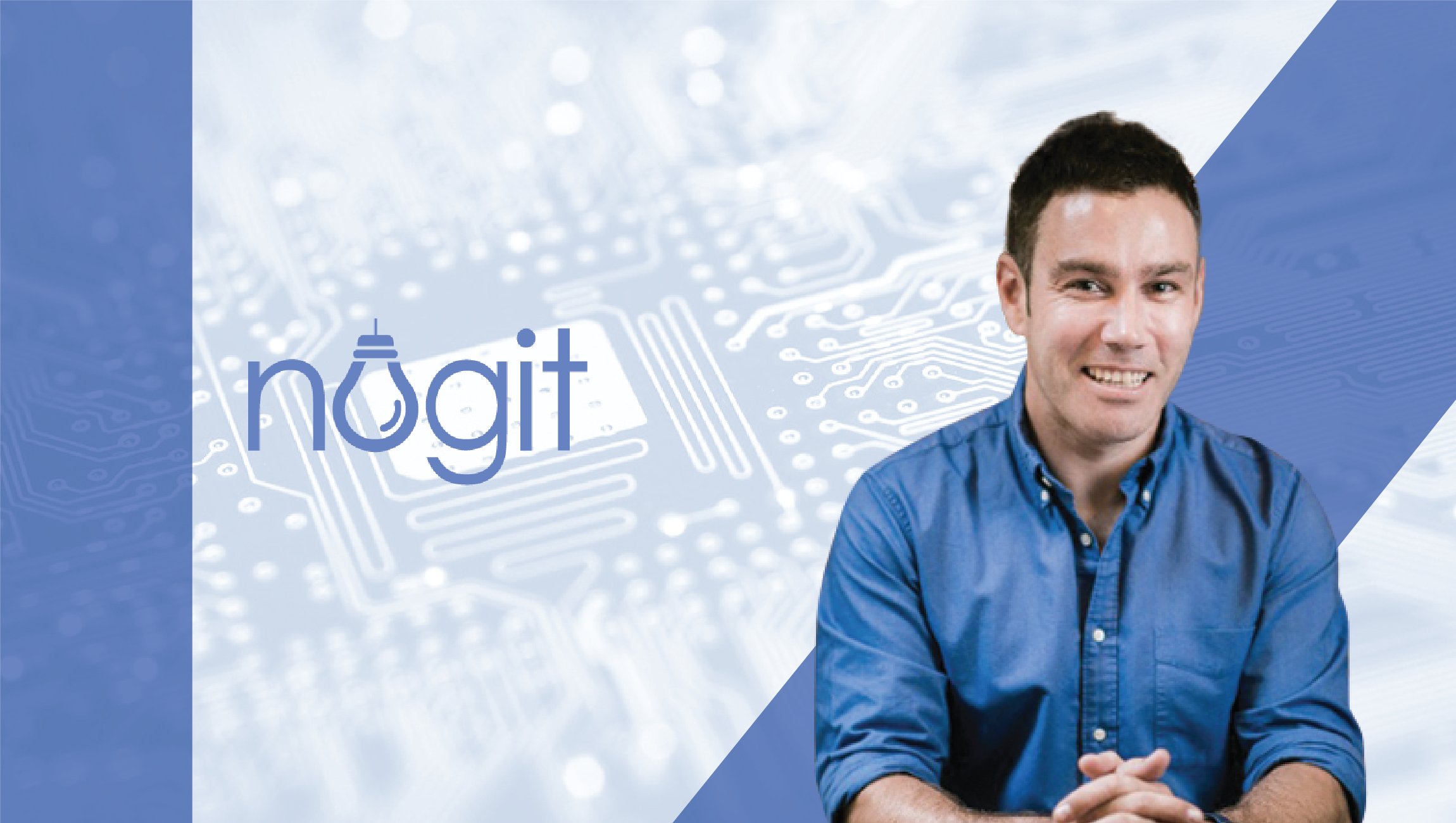Tell us about your role and how you got here. What inspired you to start a data intelligence company?
Before I was a Startup Entrepreneur I was a consultant at a global media group. My role was to analyse the data collected from marketing activities and come up with new ideas and business cases for my clients. I spent too many hours doing this, and I probably spent over 10,000 hours in Excel spreadsheets and PowerPoint building stories from data. I guess I could be considered an Excel master, but there were only so many problems I could work on in any given week. I became fascinated with technology and artificial intelligence. There was a trend to adopt Martech, but each tool we used seemed to add more overhead to our days rather than less. I dreamt of building a tool that made people’s lives easier from day one, and could allow people like me to scale their expertise.
How do you see the contemporary trends in data management and analytics influencing adoption of marketing intelligence tools?
There are two main themes that come up over and over in our experience working with the marketing community. Data and AI.
Data is the core ingredient. The way we think about it has evolved in terms of what it means for business. We bought into the promise of capturing everything, but now there is a sense of missed opportunities when that promise fails to be realized. Marketing Intelligence tools that were supposed to deliver accessibility of data, such as business intelligence and dashboards, are not reaching far enough into organizations to make that data readily available to people who really need it. The reality is, data is not much use by itself, and companies are realizing they need to go further in order to remain relevant in the future.
Data Storytelling is a growing alternative, that has seen a 3.3X increase in Google searches over the last 2 years. There seems to be this shift to re-humanize a lot of the marketing data systems that have slipped down a slope of complexity, acronyms and opacity with the evolution of digital. I believe that we’ve found ourselves in a place where we often just share data, optimise on things like CPM and CTR, and forget about the context, meaning, and the purpose of why we were doing it in the first place. Data Stories bring marketing performance, data, and insights back into the real world and help people make decisions that have a real impact on business objectives rather than wasting time on vanity metrics.
The second major trend is AI, where intelligent services are being adopted to process, analyze, predict, and provide an interface for us to access marketing information at scale. AI Martech can be confusing to users, and create skepticism, but there are some tried and tested use cases being rolled out in real-world scenarios. AI is giving marketers the chance to solve problems that were too laboring before, such as cleaning, harmonizing and analyzing data, and instead making it faster, more accurate, and it can learn over time to liberate us from these time-consuming and often mundane tasks.
This trend means that data scientists or analysts are doing less data wrestling, and getting to a place where they can use the data faster. This is enabling a different kind of data scientist, one that doesn’t need to know SQL, or deal with massive spreadsheets to come into teams and be effective with data. I personally hope analytics jump on this trend and hire replacements that bring deep communication experience to the role, instead of purely data processing expertise.
A less discussed trend that we also see emerging is around using Natural Language Generation (NLG) in data management. At Nugit we are focused on NLG as a core AI capability of our Data Storytelling Platform and I recently discussed this topic in more depth following research we conducted into our NLG capabilities. We see NLG as an opportunity to translate data from numbers into words in plain English, and tell stories. There’s a lot of evidence to suggest this form of data is effective at sharing information. Whether humans will trust AI to deliver these kinds of insights as a human is yet to be seen, however, Gartner has predicted that by 2019, natural-language generation will be a standard feature of 90% of modern BI and analytics platforms.
In 2018, what would be the biggest expectations from data analytics technologies?
It will be utilizing AI technology to process data from many different sources, to provide accurate, personalized information that goes beyond just Dashboards as we know them. Users will expect to receive information on their terms, in a format and frequency that suits them. They will want data platforms to answer natural business questions likes Google answers our search queries. People will also expect data sharing in their workflow, rather than as disparate Dashboards. This could mean within messaging, mobile, or in their current productivity tools.
How does Nugit’s data engine work with search, social and programmatic platforms? Tell us more about these integrations.
We’ve built our Data Storytelling Platform to integrate directly to 26 marketing tools. These include Google Analytics, Facebook Ads, DoubleClick Manager, LinkedIn, Google Analytics, and many other technologies that are used here in Asia.
We have worked hard to create an instant report experience, with time-to-value as our key performance metric. Once a user has added data, in a few clicks they will receive dozens of relevant Data Stories that bring out insights and opportunities.
The API allows us to update the data daily, and access additional information that can be used for insights such as image and video creative, benchmark information and historical data for higher quality insights.
How do B2B influencer marketing communities help in building and fortifying brand safe ecosystem for marketing tools?
Online communities are a great source of research for marketers to discover new innovations and assist in the discovery process. They allow smaller startups to present their solution in front of the target market, and reach those that can benefit and give feedback.
What startups are you watching/keen on right now?
There are lots of exciting companies that are solving persistent problems in new ways. Evie, an AI scheduling bot, is something we’re using a lot at Nugit. Evie makes meeting scheduling more efficient and reduces long email chains. Slack of course is enabling high-velocity communications. There is also Cake.hr and Recruitee.com that we use for backend efficiencies. It’s great to see them continuously improve each month.
What tools does your marketing stack consist of in 2017?
We’ve seen a move away from Dashboards as the go-to-solution to measure marketing campaigns across multiple platforms. We’re seeing a trend to visualize data and use narratives to make sense of key insights. Marketing departments are running so many campaigns across so many different platforms, they’re struggling to make sense of their data and performance just by relying on Dashboards.
Would you tell us about your standout digital campaign?
We did a small campaign on Facebook that highlighted success stories of our customers. Instead of talking about our product and technology, we shared the impact Nugit had directly on our customer’s professional lives. It was driven by a hypothesis that the world is looking to re-humanize, and simplify from the huff and puff of data systems. This produced results about 4x per $ spend more than a pure product message. During the campaign, we tracked the cost per qualified lead. Later on, we looked at the conversion to trial user.
How do you prepare for an AI-centric world as a business leader?
It’s easy to avoid AI as experiments, and continue status quo, but I believe building a learning environment and capability for integrating AI is taking steps towards future-proofing your organization. There’s a valid concern for what it means to jobs and reinventing job descriptions, but the marketing industry has been constantly reinventing itself anyway, and it’s good at it. I believe that domain knowledge will be king and those with deep experience in a particular discipline, that have also embraced AI and intelligent tech, will be the people that get all the promotions and their businesses will see growth.
One word that best describes how you work.
Persistent
What apps/software/tools can’t you live without?
Slack, Uber, Spotify, Apple TV, Nugit.
What’s your smartest work related shortcut or productivity hack?
I block 16 hours per week out of my calendar for GSD (get-shit-done) on strategic tasks. I do this 4 weeks ahead to protect my time from reactive activities and meetings.
What are you currently reading? (What do you read, and how do you consume information?)
‘Stories that Move Mountains’, and ‘Play Bigger’ are on my bedside table now. On the side I’m also reading a few poker books. I like to read hardcovers, and usually buy from the airport when I’m traveling. Other than books, I use Flipboard on my mobile, and have just started trying podcasts. If you know any goods ones I’d love some recommendations.
What’s the best advice you’ve ever received?
When you’ve got a challenge or problem that you feel you can’t overcome, ask yourself, “What would an entrepreneur do?”. Looking at challenges through this lens puts me in a more resourceful frame of mind to think scrappy and creative, and usually solutions come.
Tag the one person in the industry whose answers to these questions you would love to read:
Elon Musk. How he can manage a rocket company, electric cars, underground hyperloops and an AI lab amazes me. What does he use for productivity?
Thank you Dave! That was fun and hope to see you back on MarTech Series soon.
Before starting Nugit, I’ve worked in senior marketing services positions in Australia and Asia Pacific in firms ranging from full-service digital, pure-play media agencies and specialist data agencies. My domain knowledge specialities are data analytics, business intelligence, search engine strategies, and digital media. I’m always keen to share my experiences and discuss ideas in our industry, so feel free to get in touch.

Nugit is driven by the desire to help people realise the possibilities of data, because decisions based on data, are simply better. We aim to get rid of complexity and make the data overload manageable for everyone. Through technology, Nugit transforms business data into decision-ready reports which are easy for people to understand and share. We simplify and humanise every aspect of the data experience to help people make data-driven insights easier to find, digest and act on.
The MTS Martech Interview Series is a fun Q&A style chat which we really enjoy doing with martech leaders. With inspiration from Lifehacker’s How I work interviews, the MarTech Series Interviews follows a two part format On Marketing Technology, and This Is How I Work. The format was chosen because when we decided to start an interview series with the biggest and brightest minds in martech – we wanted to get insight into two areas … one – their ideas on marketing tech and two – insights into the philosophy and methods that make these leaders tick.



